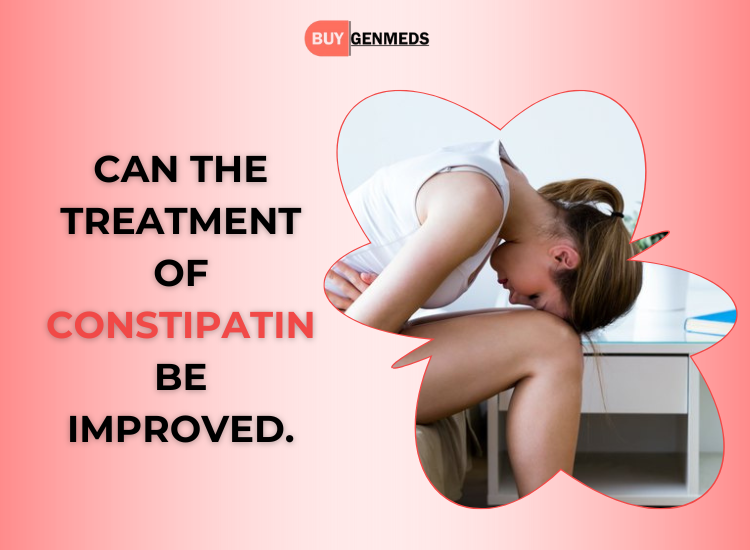Constipation is a common digestive issue that affects people of all ages and can significantly impact quality of life. It is often characterized by infrequent bowel movements, difficulty passing stool, and a sense of incomplete evacuation. While occasional costiveness is generally not a cause for concern, chronic constipation can lead to discomfort, pain, and other health complications. Despite the widespread prevalence of costiveness, many individuals still struggle with finding effective treatments that offer lasting relief. This article explores various ways the treatment of constipation can be improved, focusing on lifestyle changes, dietary adjustments, medical interventions, and innovative therapies. Before delving into treatment options, it is essential to understand what causes costiveness. Constipation can be the result of numerous factors, including poor diet, insufficient fiber intake, lack of physical activity, dehydration, stress, certain medications, and underlying medical conditions such as irritable bowel syndrome (IBS) or thyroid disorders. For effective treatment, it’s crucial to identify the root cause of costiveness in each individual case. This helps tailor a more specific and effective treatment plan that addresses both symptoms and causes. Diet plays a central role in preventing and treating constipation. A diet rich in fiber, fluids, and natural laxative foods can significantly improve bowel regularity and reduce symptoms. Fiber is one of the most critical components for healthy digestion. There are two main types of fiber that aid in alleviating constipation: For those with costiveness, increasing daily fiber intake gradually can help avoid gas, bloating, or discomfort. Aiming for at least 25–30 grams of fiber per day is recommended, though specific requirements vary based on individual needs. Dehydration is a common cause of costiveness, as water is necessary to help fiber do its job in forming soft, easy-to-pass stools. Increasing fluid intake can assist with improving bowel movements. It is recommended to drink at least eight glasses of water per day, though individual needs may vary depending on age, activity level, and climate. Probiotics are beneficial bacteria that support gut health and can aid in the treatment of costiveness. Probiotic-rich foods such as yogurt, kefir, sauerkraut, and kimchi can promote regular bowel movements by improving the balance of gut bacteria. Probiotic supplements, especially those containing strains like Lactobacillus and Bifidobacterium, may also help relieve constipation, particularly in individuals with IBS-related colitis. Certain foods are known to have natural laxative properties and can be included in the diet to alleviate costiveness. These include: In addition to dietary changes, certain lifestyle modifications can greatly improve the treatment of constipation. Lack of physical activity is a common contributor to constipation. Regular exercise helps stimulate the muscles in the intestines, encouraging bowel movements. Incorporating activities like walking, swimming, or yoga into a daily routine can improve digestion and prevent costiveness. Training the body to have regular bowel movements can be highly effective in managing constipation. This involves setting aside time each day, preferably after a meal, to try using the restroom. Being consistent with this routine helps the body get into a rhythm, reducing the likelihood of irregular bowel movements. Delaying the urge to have bowel Movement can lead to harder stools and exacerbate costiveness. It’s important to go to the bathroom when the body signals the need. Ignoring these signals can cause the stool to remain in the intestines longer, leading to further water absorption and difficulty passing stool. For individuals who do not find relief through dietary and lifestyle changes, medical interventions may be necessary. A range of treatments is available, from over-the-counter laxatives to prescription medications. There are several types of laxatives available over the counter, each with a different mechanism of action: While laxatives can be effective for short-term relief, they should be used cautiously, as long-term use can lead to dependency or worsen costiveness. These medications are typically prescribed for individuals with chronic idiopathic costiveness or constipation-predominant IBS (IBS-C) and can be effective in improving symptoms. Beyond traditional treatments, there are several innovative and alternative therapies that can be effective in treating constipation. Biofeedback is a non-invasive therapy that can help individuals with pelvic floor dysfunction, a condition that often leads to chronic costiveness. During biofeedback therapy, patients learn how to relax and coordinate the muscles involved in defecation, improving bowel movements. This technique has shown promising results in individuals with constipation caused by pelvic floor dysfunction. Acupuncture, a traditional Chinese medicine practice, has been used to treat various gastrointestinal issues, including costiveness. Some studies suggest that acupuncture can improve bowel function by stimulating certain pressure points on the body that are believed to regulate digestion. Certain herbs have long been used as natural remedies for costiveness. Senna, aloe vera, and cascara sagrada are known for their laxative effects, while peppermint oil and ginger can help soothe digestive discomfort. However, herbal remedies should be used cautiously, as some may have side effects or interact with other medications. In cases where constipation is a symptom of an underlying medical condition, treating the root cause is essential for long-term relief. Common conditions that can lead to costiveness include. Constipation is a common but manageable condition that can be improved through a combination of dietary changes, lifestyle modifications, medical interventions, and alternative therapies. By addressing the underlying causes of costiveness and adopting a comprehensive. Understanding Constipation: Causes and Symptoms
The Role of Diet in Improving Constipation Treatment
Increase Fiber Intake
Stay Hydrated
Add Probiotics to the Diet
Incorporate Natural Laxative Foods
Lifestyle Modifications for Improved Constipation Treatment
Regular Physical Activity
Establish a Bowel Routine
Avoid Holding in Bowel Movements
Medical Interventions for Treating Constipation
Over-the-Counter Laxatives
Prescription Medications
Innovative Therapies and Alternative Treatments
Biofeedback Therapy
Acupuncture
Herbal Remedies
Addressing Underlying Health Conditions
Conclusion
Can The Treatment Of Constipation Be Improved.

26
Sep






